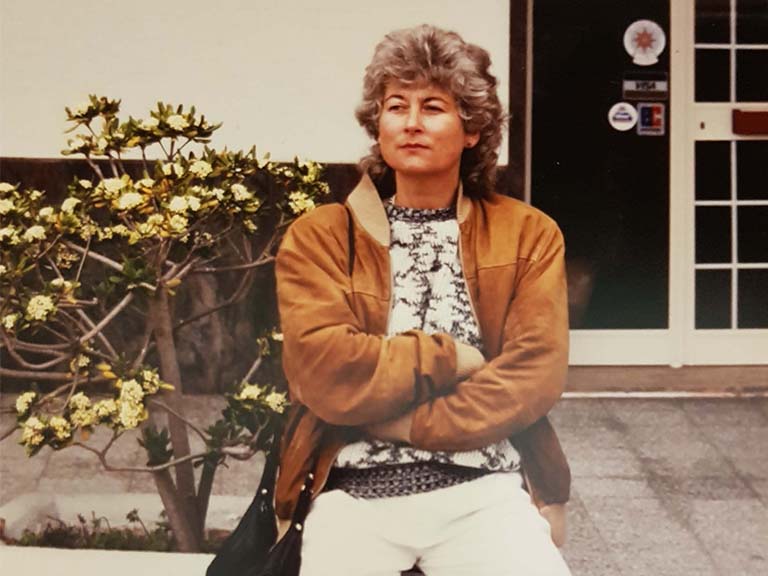Alumni with regional commitments
Making a difference at home
Some people are drawn to distant places after their studies, while others consciously decide to stay and work in their home region. Five alumni of the University of Bern talk about their years of study, their careers to date and how they are helping to shape the region today.
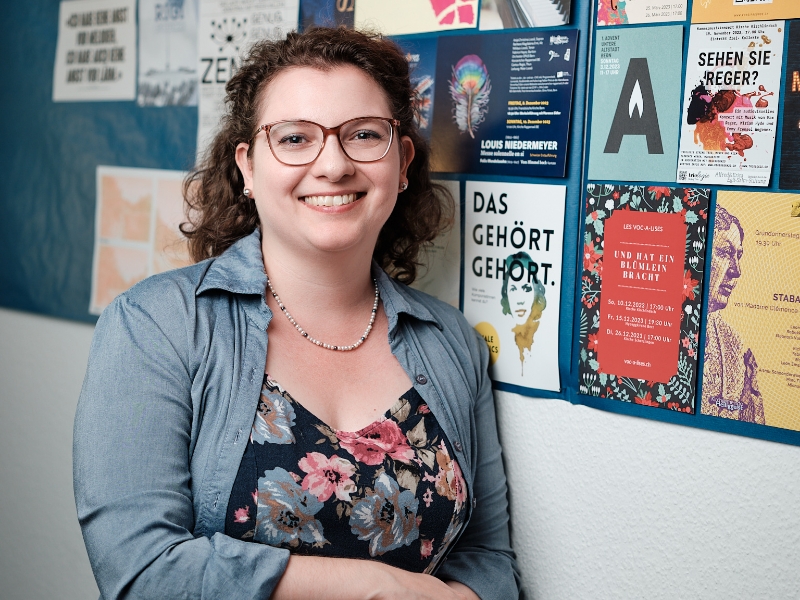
“Bern’s cultural scene ‘is buzzing’ – there’s so much going on”
“After specializing in music at high school, I wanted to try out a new direction and started studying social sciences. The topics were fascinating, but I missed the music. A fellow student talked about musicology, a degree program that is also available at the University of Bern. After a taster day that included taking part in practical exercises, I knew: That’s it! As kitschy as it sounds, I was fascinated by the content and the various perspectives on music throughout my years of study. I particularly enjoyed writing about music.
Magazine uniFOKUS

A part of Bern
This article first appeared in uniFOKUS, the University of Bern print magazine. Four times a year, uniFOKUS focuses on one specialist area from different points of view. Current focus topic: A part of Bern.
I also gained work experience at an early stage. I wanted to get to know different areas of musicology in order to find out what I might do after my studies. I worked in an editorial department for music educational teaching materials, as a tutor at the Institute and as a dramaturgy and directing assistant at the theater. I also wrote program texts and gave opera introductions. This allowed me to acquire knowledge and build up a network in the cultural scene. In the summer of 2021, I ventured into self-employment and founded my own company in the field of musicology and cultural management. A mandate that had already been secured before the company was founded proved to be a springboard. Despite the coronavirus pandemic, I got off to a good start and quickly received other mandates. Bern’s cultural scene ‘is buzzing’ – there’s so much going on. I would like to be able to help shape and develop the scene through my work.”
“Sales representative” of the Cantonal Church
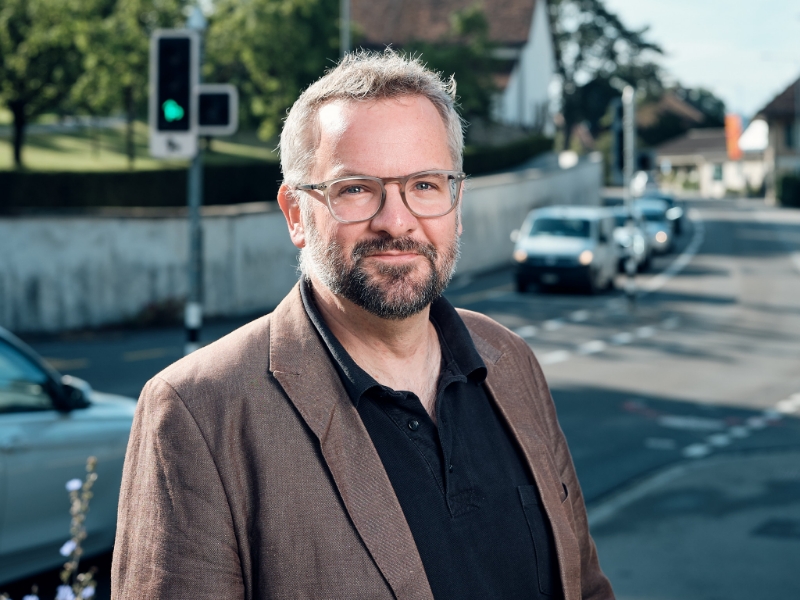
“After completing a commercial apprenticeship in Zurich, I completed my high-school qualification at the KTS (Church Theological School) in Bern and then enrolled in theology because I wanted to explore the big questions of being human. There was an open, liberal spirit in Bern. The faculty is small, everyone knows everyone else. I still have friends dating back to that time.
After my vicariate in Zurich, I spent eight years as a parish priest in Muri near Bern. Then I started to find things too limiting. As a regional pastor, I’m a ‘sales representative’ of the Reformed Cantonal Church and responsible for 32 parishes from the lower Emmental valley to Oberaargau. I support the clergy and authorities, for example in the event of vacancies, conflicts or when it comes to the further development of parishes. I rarely do practical parish work anymore.”
Bringing modern dentistry to the “periphery”
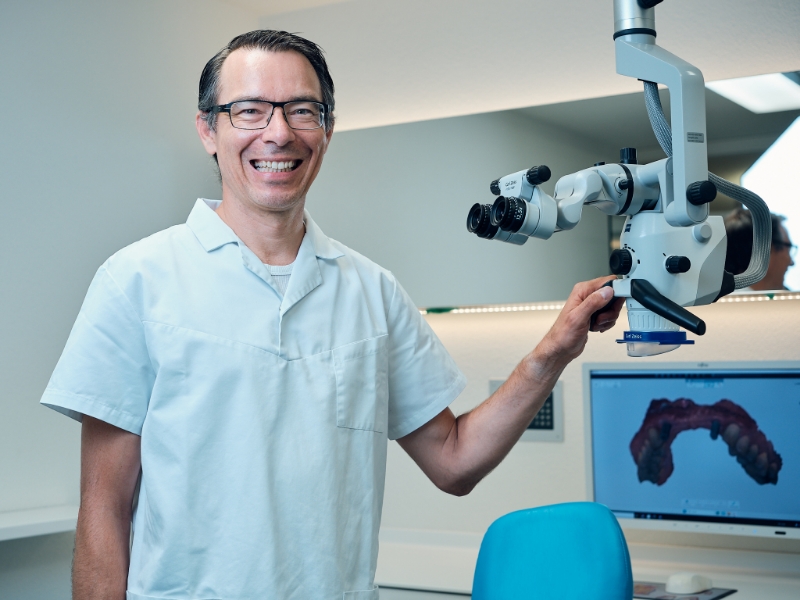
“I decided to study in Bern for two reasons: On the one hand, the University was easy to reach from Interlaken, where I grew up. On the other, Bern is considered to be a top university among dentists, even by international standards. In my year, there were only about 25 students, which is a very intimate setting. It was a tough time, but we also partied a lot and went on vacation together after our state examination. Even today, I regularly exchange personal and professional information with some of my fellow students from back in the day.
I wanted to study human medicine until high school. During a taster week at Interlaken Hospital, however, I realized that the hierarchical system and the difficult balance between family and work did not suit me. While taking a look at the School of Dental Medicine at the University of Bern, I found an established team and a good atmosphere. As a dentist, I could also perform surgery earlier and work independently. After my dissertation, I did three years of specialist training in periodontology. In 2011, I took over a dental practice in Interlaken, so I am back to living where I come from. Many dentists are drawn to the urban centers, but I love being close to the mountains and the lake. Tourism has changed Interlaken considerably, not only for the better. But from here, it doesn’t take you long to get out into nature on your own. Thanks in part to my training as a specialist dentist and my network, I have brought modern, specialized dentistry to the periphery. This benefits not only patients, but also many young professionals who are doing their training or continuing education here.”
From handball to communication
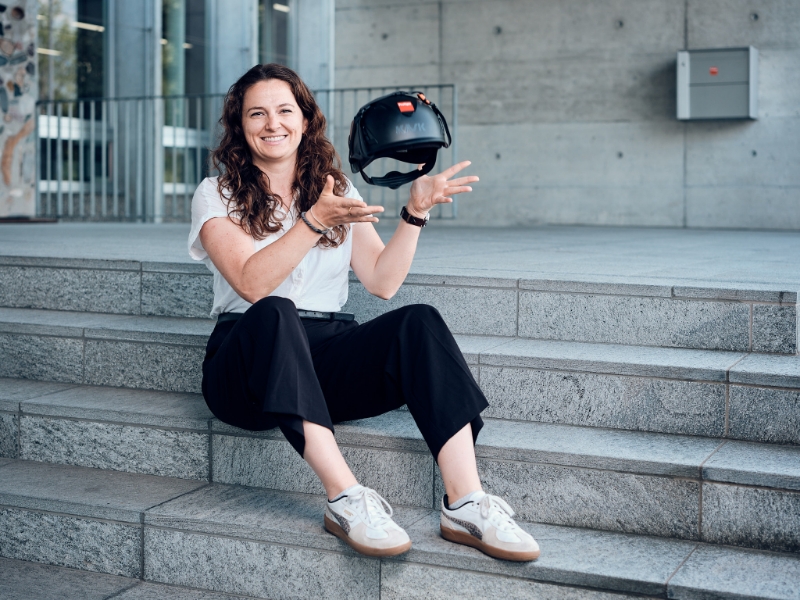
“Studying sport science gave me the flexibility I needed for my training workload – back then, I played handball in the top league. After two torn cruciate ligaments, I had to end my sports career. I don’t play handball anymore. I am too ambitious to do this sport at a lower level.
After completing my bachelor’s degree at the University of Bern, I completed a master’s degree in communication sciences and media research in Fribourg. At the age of 25, I became the managing director of the Wacker Thun handball club where I could live out my love of handball, but the job was very time-consuming. I have been Head of Marketing & Communication at the construction company Frutiger AG in Thun since May. I have a strong connection to the city; my parents and a lot of my friends live here. As a member of the Board of Sport Thun, I am also committed to sports policy issues.”
Subscribe to the uniAKTUELL newsletter

Discover stories about the research at the University of Bern and the people behind it.
Back to the professional roots
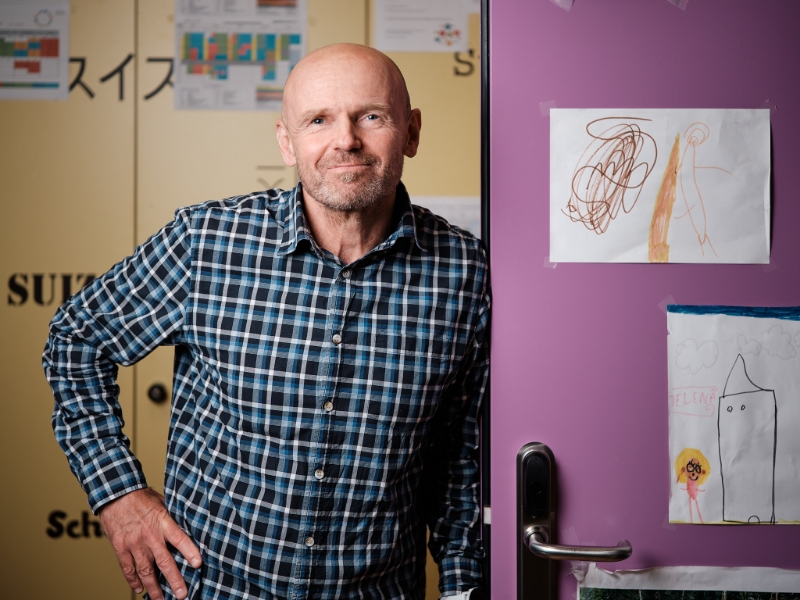
“After teacher training college, I started studying sport science in Bern in 1990. At the time, I was hoping for a career in professional sports – as a junior at SC Bern, I had played for Switzerland at the U18 and U20 European and World Championships. But it wasn’t quite enough for a professional career. In addition to ice hockey, I now do long-distance triathlon. I have been involved in youth sports for around 30 years with the Thun Cadet Corps.
The admission criteria for studying were strict. There were just under 20 students in my year and we maintained close contact. After a few years as a secondary and vocational school teacher, I moved to fedpol where I was responsible for risk assessment and aviation security. Shortly before my 50th birthday, I returned to my professional roots: As principal in Frutigen, I am responsible for seven school buildings.”
ABOUT THE INSTITUTE FOR LEGAL ITALIAN LANGUAGE AT THE UNIVERSITY OF BERN
The Istituto di italiano giuridico at the University of Bern (Institute for Italian Legal Language) is the first university center dedicated to the enhancement and promotion of and research into Italian legal language. As Italian is one of the official languages of Switzerland, standard legal texts such as laws and ordinances, procedural texts such as judgments, and administrative texts such as decrees are also written in Italian. Interpretive texts such as monographs, com-mentaries, and scientific articles are also formulated in Italian. The new institute of the Univer-sity of Bern was founded in the city that houses the Federal Assembly of the Swiss Confedera-tion and the Federal Council, and therefore maintains direct relations and close collabora-tions with the Federal Chancellery, Legislation and Language Section, and the State Council of the Canton of Ticino
